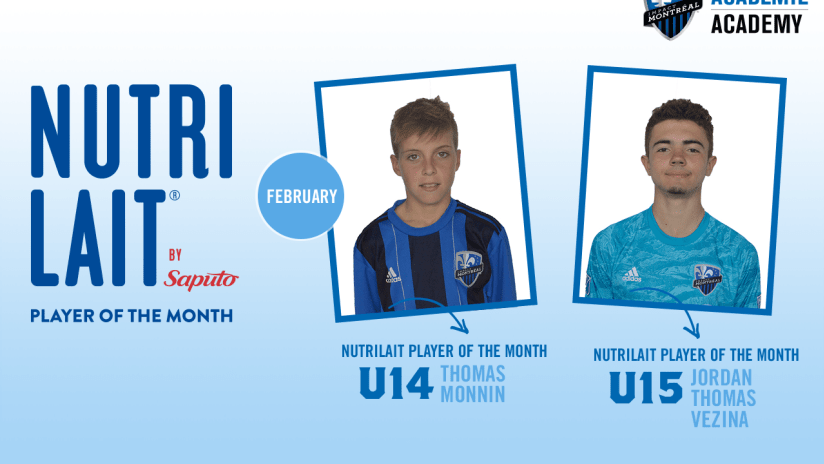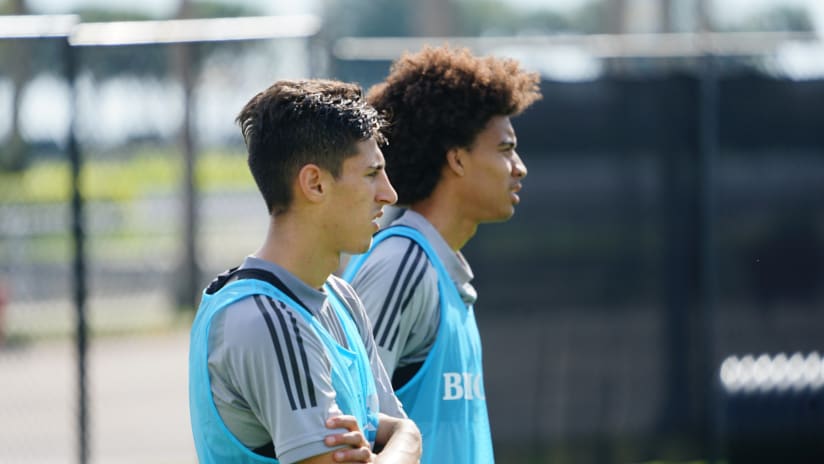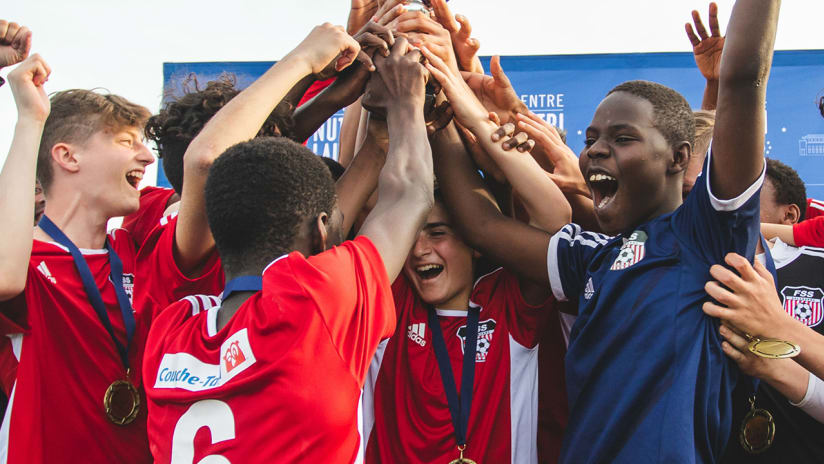The Pre-Academy kicked off its second year this past April. Yoann Damet, Pre-Academy coordinator and coach of the U11 team, took some time to answer a few questions on the necessity of the preliminary step before joining the Impact Academy.
What is the goal of the Pre-Academy?
The objective is to have teams of 8 to 12 year olds and to establish the basics of our philosophy. Then, when they join the Academy, there’s already a solid base that we can work with. We want to share our values and principles, but also our identity of play at a young age so when they arrive at the Academy five times a week, they have already seen the methodology and the educational approach at the Pre-Academy. There is a common thread from the U8 all the way to FC Montreal. The idea is to go one step at a time so the players can progress through all the stages of training, from the youngest to the oldest.
What is the decision process that you went through in building the Pre-Academy?
The initiative came from Philippe Eullaffroy and the Academy staff, who thought it was necessary to start training players at the earliest age so that we have a head start on their development. The important part is that when they arrive at the U12 and U13 level, we have players that know how the Academy works, so we can add skills to what they already have learnt. We can educate them at a young age and then train them.
Why is it so important to train them starting at 8 years old?
What’s important is to give them the right methodology. At 8 years old, it’s easier to introduce a young player to certain principles then at 12, when you have to change their habits. When they will be with the older groups, they will approach training and principles of play differently and will already have some knowledge. Then, we will work on their training with certain basics and benchmarks, which will help increase the work on little details and develop their skills.
The sense of belonging to the club also develops at a young age. When they play in our environment, young players like the club and enjoy going to the stadium. They develop a soccer and club culture. It will be the same thing with FC Montreal; the young ones will identify themselves with the older players at the Academy.
What is a typical schedule for this category of age at the Montreal Impact?
There are fewer training sessions since these young players don’t have an adapted schedule, unlike the older ones who have a sports-etudes program in order to be able to train. At the Pre-Academy, that’s not the case. They are still in primary school, so they come to training at night after school. They have busy days as they go early to school in the morning, but we want to make sure they have a balanced life. We offer fewer sessions, but the impact is still really positive with two or three training sessions per week.
After a few discussions with the Academy staff, we notice that the results are not a priority until a certain level. Why?
We start with the assumption that the result is only a number, but it won’t necessarily reflect the player’s performance. A 5-0 win or defeat doesn’t necessarily reflect the game’s content. We evaluate them on the performance. This is why from the Pre-Academy to the U14s, the teams don’t play in a league. We only schedule friendly games. However, we have to make a distinction between being competitive and to win at all cost. We want to develop competitors, players that want to be the best, eager to face the opponent and to put in place what they learnt during the week, but we don’t want them to focus on winning only. They have to respect our identity of play. We want to sensitize them to the fact that before results comes respect for the project, to be a good team together.
Is it hard to make them understand that the performance is a bigger goal then the result at that age?
It’s a process that is taking place gradually. Sometimes it’s difficult for the players that join us, but again we gain time for the future with the Pre-Academy. Those who were with us last year already know it. They will be evaluated on the collective performance and not on the final result of the game. There is also confidence and environmental factors that are important. We want to get rid of that environment where there’s the pressure of winning all the time. They are young. We want to give them time in an environment of trust and serenity so they can realize their full potential and feel comfortable with us. It will help them progress.
What can we expect in 2015?
We will continue from where we left of last year. The innovation is that we have someone in charge of the physical development that will work with the U8s to U10s, while I will do it with the U11s and U12s. The idea is to work in a qualitative way on physical development, especially on coordination and speed. At this age, it’s the best time to progress in this department. We also put in place an educational base on injury prevention, the right position for building core muscles and stretching, which will help them when they will be part of the Academy.




